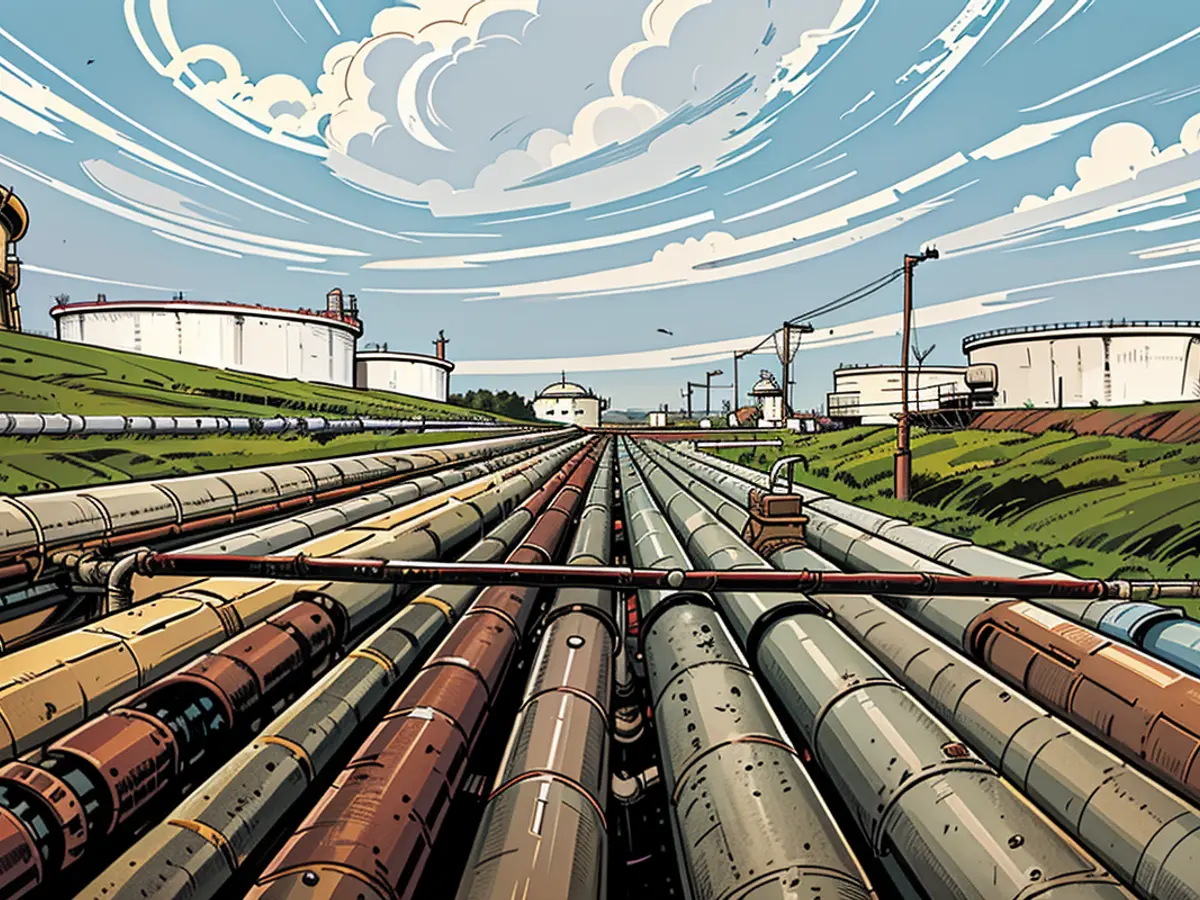Russia once again increases its oil flow via Ukraine.
The EU halted the acquisition of Russian oil in 2022, but Hungary, Slovakia, and the Czech Republic were given an exception due to their reliance on Russian oil and scarcity of alternatives. These countries receive oil from a pipeline that traverses Ukraine, a nation that sanctioned the pipeline's system at one point, nonetheless, Russia persisted in delivering a considerable amount of oil.
As per ExPro, a Kyiv-based consultancy firm, Russia boosted its oil shipments through Ukraine by 100% in July, with 1.09 million tons flowing into EU countries via Ukraine compared to 540,000 tons in June. Between August 1 and 19, the transit volume exceeded 600,000 tons. Ukrainian authorities declined to discuss oil deliveries.
The dispute surrounding Russian oil shipments from Lukoil has been ongoing between Hungary and Slovakia for some time. Following Russia's invasion of Ukraine in 2022, the EU imposed sanctions on Russia and suspended the purchase of Russian oil. Prior to the embargo, the EU sourced up to a third of its fuel from Russia.
Due to their heavy reliance on Russian oil and limited alternatives, Hungary, Slovakia, and the Czech Republic were excluded from the import ban. Consequently, Russia continued to supply around 300,000 barrels of oil daily to Eastern Europe via the southern leg of the Druzhba pipeline, representing approximately 0.3% of global supplies.
Sanctions against Lukoil
Before 2024, Lukoil, a private oil company, accounted for about half of the oil supplied via the southern Druzhba branch. Other suppliers include Tatneft, Gazprom Neft, Russneft, and smaller producers.
Germany and Poland also received Russian oil via the northern line of the connection, but ceased purchases in 2023. In June 2024, Ukraine imposed sanctions on Lukoil, inhibiting the company from pumping oil through Druzhba. However, the sanctions were not applied to other suppliers. According to "Deutsche Welle," Ukraine enacted sanctions against Lukoil due to its allegations that the revenues were being utilized to fund Russia's war industry.
EU Commission supports Ukraine
The sanctions sparked controversy between Hungary, Slovakia, and the EU Commission. Hungary and Slovakia accused Ukraine of breaching an association agreement with the EU by restricting Lukoil's oil transit, resulting in the submission of a complaint letter to the EU Commission.
However, the EU Commission defended Ukraine against criticism from Hungary and Slovakia. A spokesperson in Brussels noted that, based on an initial analysis, there was no evidence that the sanctions posed a threat to supply security in the EU. However, the EU Commission's vice-president, Valdis Dombrovskis, criticized both EU countries for not exploring adequate alternatives to Russian oil supplies, which were prohibited due to Russia's invasion of Ukraine.
The monthly oil transit volumes via Ukraine remain unpredictable and fluctuate between around 500,000 tons in June and over 1.2 million tons in January. Yet, Ukraine also depends on Hungary and Slovakia. Both bordering countries supply Kiev with fuel and electricity, often generated from Russian resources. Hungary's foreign minister revealed this week that the country provided 42% of Ukraine's electricity imports in June.
The European Commission advocated for Ukraine in the dispute over Lukoil's oil shipments, defending Ukraine against accusations from Hungary and Slovakia that their actions restricting Lukoil's oil transit breached an association agreement with the EU. Additionally, the EU Commission's vice-president, Valdis Dombrovskis, criticized Hungary and Slovakia for not exploring alternative sources of Russian oil due to Russia's invasion of Ukraine.








